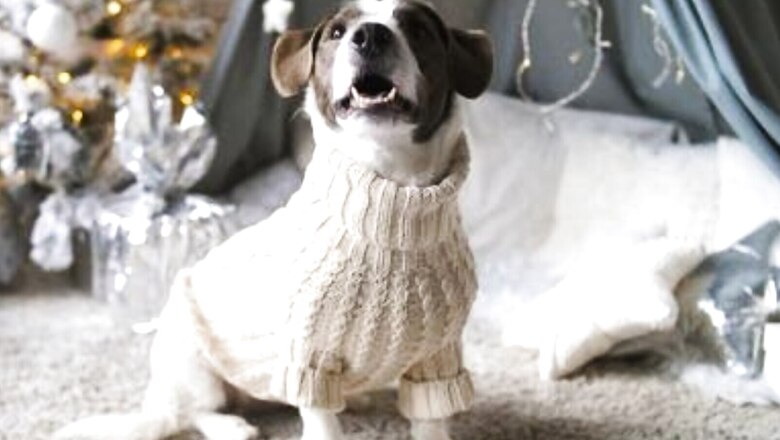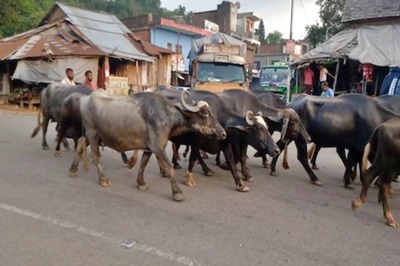
views
Can you imagine going out in cold weather without a sweater? No, right. The same applies to your pet too. Similarly, just like your appetite in winter changes, your pet also needs the right amount of nutrition. While they need extra fat to stay warm and avoid freezing, a balance of protein, carbohydrates, vitamins, minerals, and water is a must to maintain their normal physiological functions. Just like us, many dogs have different dietary requirements.
Managing calorie intake
While some dogs become less active and require fewer calories or even gain weight during the winter, others require more calories to maintain the increased energy required to combat the cold. In either case, continue to feed your dog as usual and monitor their weight. If they begin to lose weight, you may need to increase their calorie intake. If they begin to gain weight, you may need to reduce their calorie intake until the temperature rises again.
Keep your dog hydrated
Your dog is more likely to become dehydrated during the winter as the air is typically dry. Keep a water bowl handy so they can stay hydrated during the cold. If you keep your dog outside during the winter, make sure its water bowl is not freezing.
Add a supplement
Even if your dog is consuming raw food that is suitable for his breed, the winter season may demand it to consume additional calories. It may be something for digestion or for stiffness, arthritic joints that swell in the winter. Speak with a veterinarian for proper guidance on the supplements that your dog would need.
Food rich in collagen
During the winter, dogs with osteoporosis and hip dysplasia experience a great deal of pain. To help them get relief, dogs must be given collagen-rich foods such as eggs, green leafy vegetables, chicken feet, bone broth, fish skin, and many more.
Keep an eye out for signs of nutritional deficiency
Pets, like humans, can show signs of malnutrition such as dull, brittle coats and dry, flaking skin. Examine your pets for these symptoms and make the necessary dietary changes. If you’re unsure of how to go about treating your pet, visit a veterinarian.
Read all the Latest Lifestyle News here




















Comments
0 comment